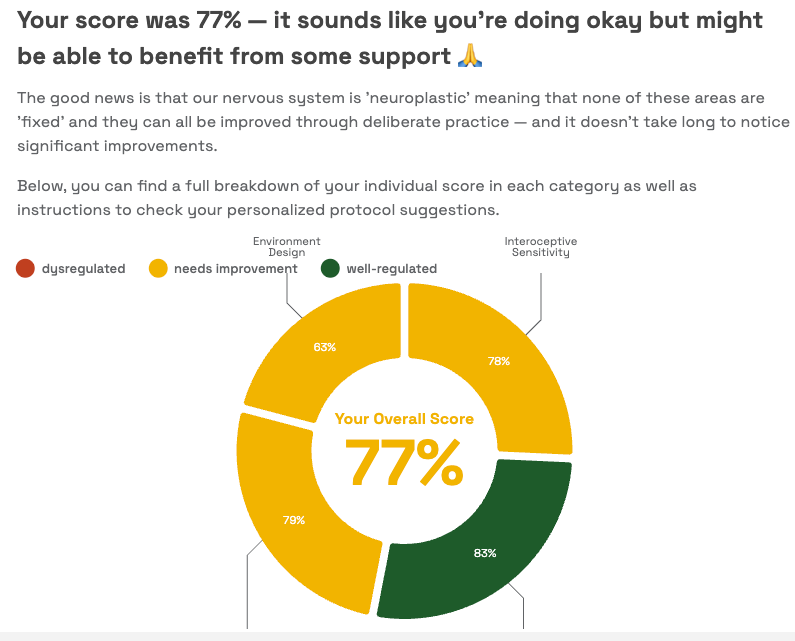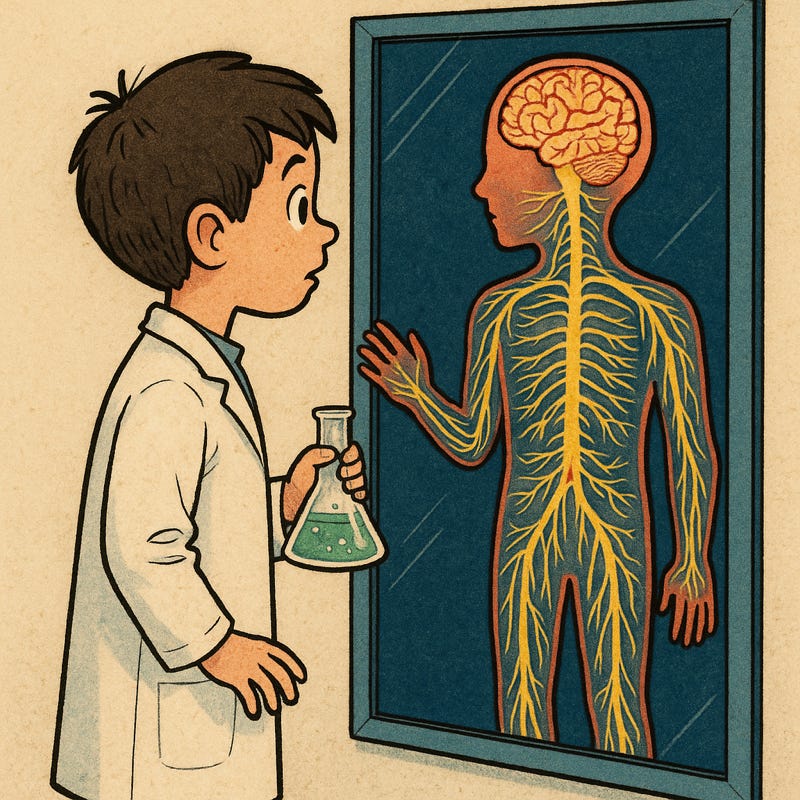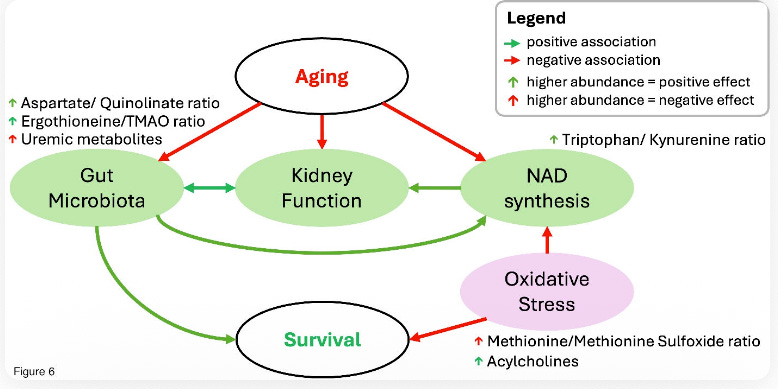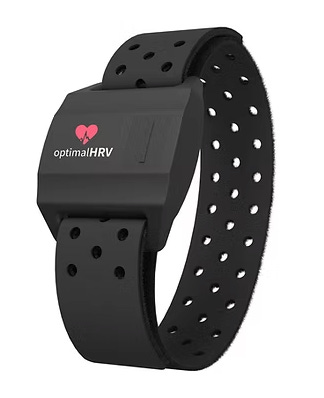Personal Science Week 250925 Nervous System
Tracking your nervous system, plus more readings on longevity, sleep, and more
We’ve previously described the intriguing theories that emotions aren’t real and a review of a book that argues the much of our “brain” is actually in the “periphery”, an extensive system of nerves extending throughout the body and the gut.
Since personal scientists are always on the lookout for simple ways to quantify these effects, we were happy to try a simple online Nervous System Quotient Test.
Nervous System Quotient (NSQ)
Jonny Miller (@jonnym1ller) is a motivation consultant who thinks of the nervous system as a bodily organ that can be trained and reshaped just like other muscles. He makes a simple on-line quiz to assess roughly what kind of nervous system you have now.
The questions are simple, but require a certain amount of self-awareness:
“I am able to notice where tension is located inside my body”
“I notice if my breath shifts or if I hold my breath while working”
Click here to take the 5-minute quiz: https://assessment.nsmastery.com/questions

NSQ recommends several ways that I can improve my score, including a series of breathing introspective exercises called NDSR (Non-Sleep Deep Rest). The basic idea reminds me of the kind of hypnosis we mentioned in PS Week 220519. We discussed the “eye roll” test of your level of hypnotizability, which seems like something you can train with NDSR.
More details are in a 2018 paper that compares it to a type of Yoga called Yoga Nidra designed to put you briefly into a state of “waking sleep”. Supposedly this will increase your ‘interoceptive’ sensitivity — or capacity to sense, track and feel our internal state.
You can watch Jonny Miller’s 14-minute Guided NSDR Practice video for examples. The science behind this and a collection of other sleep-related ideas are in Andrew Huberman’s Sleep Toolkit.
How well-rested do you feel
Meanwhile, if you are concerned about poor sleep, check these results computed from the American Time Use Survey as plotted by Flowing Data. On average, people tend to sleep better the older they get, until things taper off after age 70.
Want to know more about how your sleep habits compare? US News & World Report compiled a list of dozens of survey results including: 70% of pet owners sleep with their pets, 15% listen to white noise, 10% to audiobooks, and (only!) 40% wash their sheets weekly.
Personal Science Weekly Readings
Our friend Mike Lustgarten is co-author of a new paper that studied the metabolomes of New England centenarians and their offspring to see what might make them different. Their results show more evidence of the role of NAD, along with something called triptophan/kynurenine ratio. Supplement makers, get busy!
Speaking of supplements, I really enjoyed the latest Optispan Podcast, with longevity expert Matt Kaeberlein and Mito Health founder Ryan Ware. He explains how some products (e.g. methylation) have literally no standardization or oversight, and there’s nothing to stop somebody from selling a product using random numbers.
The rest of the podcast includes lots of great insights for people interested in the personal science approach to health and wellness: ChatGPT is better than your doctor for studying blood tests and other health reports, but you’ll still need a doctor to help you put together a good plan; health privacy is over-rated: HIPAA has done more harm to scientific research than any other policy because it makes it nearly impossible for willing patients to offer their data.
Meanwhile, I’ve played with heart rate variability (HRV) previously but never really found much of actionable interest. Tim Ferriss, who’s also tried in the past is now testing again and experimenting with various interventions such as vagus nerve stimulation to improve his autonomic flexibility. He recommends the Optimal HRV Reader Version 2.0 for convenience, and the Morpheus device, for monitoring during exercise (e.g., Zone 2 training).
Charlie Kirk Conspiracy Theories via Wm Briggs surveys the more whacky ways people can use motivated reasoning to come up with explanations that fit their priors (it was actually a lapel mike explosion?!). Ultimately, we have to make decisions about what to believe (usually based on who we believe) but be careful that it doesn’t get in the way of being open-minded.
About Personal Science
Personal Science is for anyone who wants to use science for personal rather than professional reasons. Whether you’re tracking your nervous system responses, experimenting with sleep interventions, or simply trying to separate legitimate research from supplement marketing hype, the key is maintaining both curiosity and skepticism. Test the tools, track your own baselines, and remember that the most interesting discoveries often come from questioning what everyone else takes for granted—including your own assumptions about what works for your body.
If you have other topics to discuss, please let us know.




